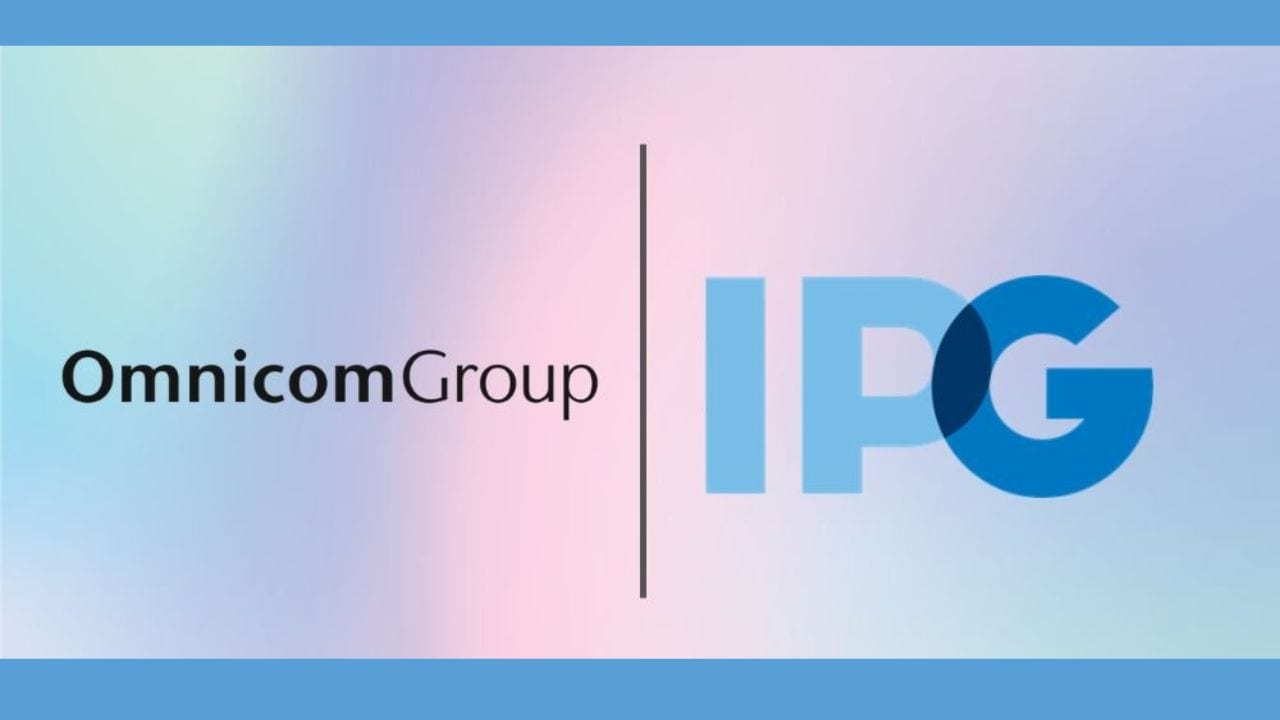The advertising world is stirred and shaken with the news of Omnicom’s acquisition of Interpublic Group (IPG), a merger that shows immense promise to metamorphose the global ad industry. The blockbuster deal values the combined entity at approximately $30 billion, with $65 billion in global media billings.
For the holding companies involved, it’s an opportunity to unify strengths and centralize power to compete in a challenging ad market, where big tech firms like Google, Amazon and Meta dominate and consultants increasingly encroach on traditional agency territory. Though some industry observers believe the strike to create a new advertising powerhouse is too little, too late.
Read more: Blockbuster Ad Deal: Omnicom’s takeover of IPG to reset global order
Once the deal passes regulator scrutiny and gets the green light, micro-mergers, integrations and consolidation are expected as Omnicom takes over IPG. The impacts of the merger won’t immediately shake-up the holdco hierarchy in India, where WPP has the lion’s share of the market.
Read more: Omnicom-IPG Deal: Will it reshape the ad order in India?
But there are some who could stand to gain from sweeping changes at holding companies and their networks of agencies.
For indie agencies, already walking a tightrope between individuality and survival, the consolidation leads to a complex case of both threats and new possibilities.
“The Big Four is turning into the Big Three with Omnicom’s deal for IPG,” notes Jason Menezes, Founding Partner & Business Head, Motley, an independent creative agency. “This is a huge moment for ad agencies worldwide. India will feel the impact too, as the agencies owned by these two giants control a significant chunk of India’s ad spend.”
Omnicom and IPG control key agency brands such as McCann, Lowe Lintas, FCB, DDB Mudra, and leading media firms Omnicom Media Group (OMG) and IPG Mediabrands, which contributes to almost 20% of the country’s Adex, the latter media investments firm has claimed.
“As an indie agency, we’re on the sidelines watching the chaos unfold,” says Menezes.
Gautam Reghunath, Co-founder & CEO of Talented, says, “I have got no dog in this fight, but it’s hard not to acknowledge how much this alters the landscape of our industry. Big holding companies are recognizing that in a market they perceive as saturated, combining resources, capabilities, and market reach trumps head-to-head competition.”
But where some see a consolidation of power, Reghunath sees an opportunity. “As major agencies blur into indistinguishable monoliths and become more homogenized, there’s an increasing appetite for distinct, meaningful creative partnerships that feel truly unique,” he argues. “Good indies offer something these mega-mergers can’t manufacture: genuine connection, nimble creativity, and a distinct cultural energy.”
Conflicts of interest and new challenges
The merger is also expected to trigger issues for brands. With Omnicom and IPG agencies to be part of the same parent company and overlapping interests, conflicts of interest could arise for clients.
“The merger is likely to create significant conflicts of interest due to overlapping accounts among the various agencies under the Omnicom umbrella,” observes Naresh Gupta, co-founder, Bang in the Middle. “This could lead to brands being cautious about their agency affiliations, as they may not want to be represented by competing agencies within the same network.”
Gupta also predicts a ripple effect, “With the merger, there will be a consolidation of resources and capabilities, which may enhance the competitive edge of the merged entity. This could pressure independent agencies to differentiate themselves further, particularly in creative and strategic offerings.”
The potential for disruption is undeniable, yet for many independent agencies, the path forward is one of adaptability. Gupta highlights this key point. “Despite the challenges, independent agencies may find new opportunities as brands increasingly seek unique and tailored solutions that larger networks may not provide. Indie agencies that focus on specific sectors or offer specialized services could continue to thrive.”
Independents will decidedly gain more than the others, believes Ashish Khazanchi, founder of independent creative agency, Enormous. “Clients concerned about conflicts of interest within the larger entity may seek the agility, creativity, and focus that independent agencies can offer,” he says, adding, “The merger’s sheer size could lead to diluted focus even on large clients, creating a gap that independent firms could take advantage of.”
Industry observers say deeper consolidation and integration across networked agencies are inevitable, as holding companies streamline operations and restructure to maintain competitiveness in an increasingly challenging market.
As the Omnicom-IPG deal unfolds, reactions from rival holding companies WPP, Publicis Groupe, Dentsu, Havas and Stagwell Inc and big consultants like Accenture Song, are expected. However, independent agencies in India and globally have a window of opportunity to make significant moves, taking advantage of upheavals at holdcos to somewhat reset the balance of power. It’s independents’ day.
Read More:Blockbuster Ad Deal: Omnicom’s takeover of IPG to reset global order
